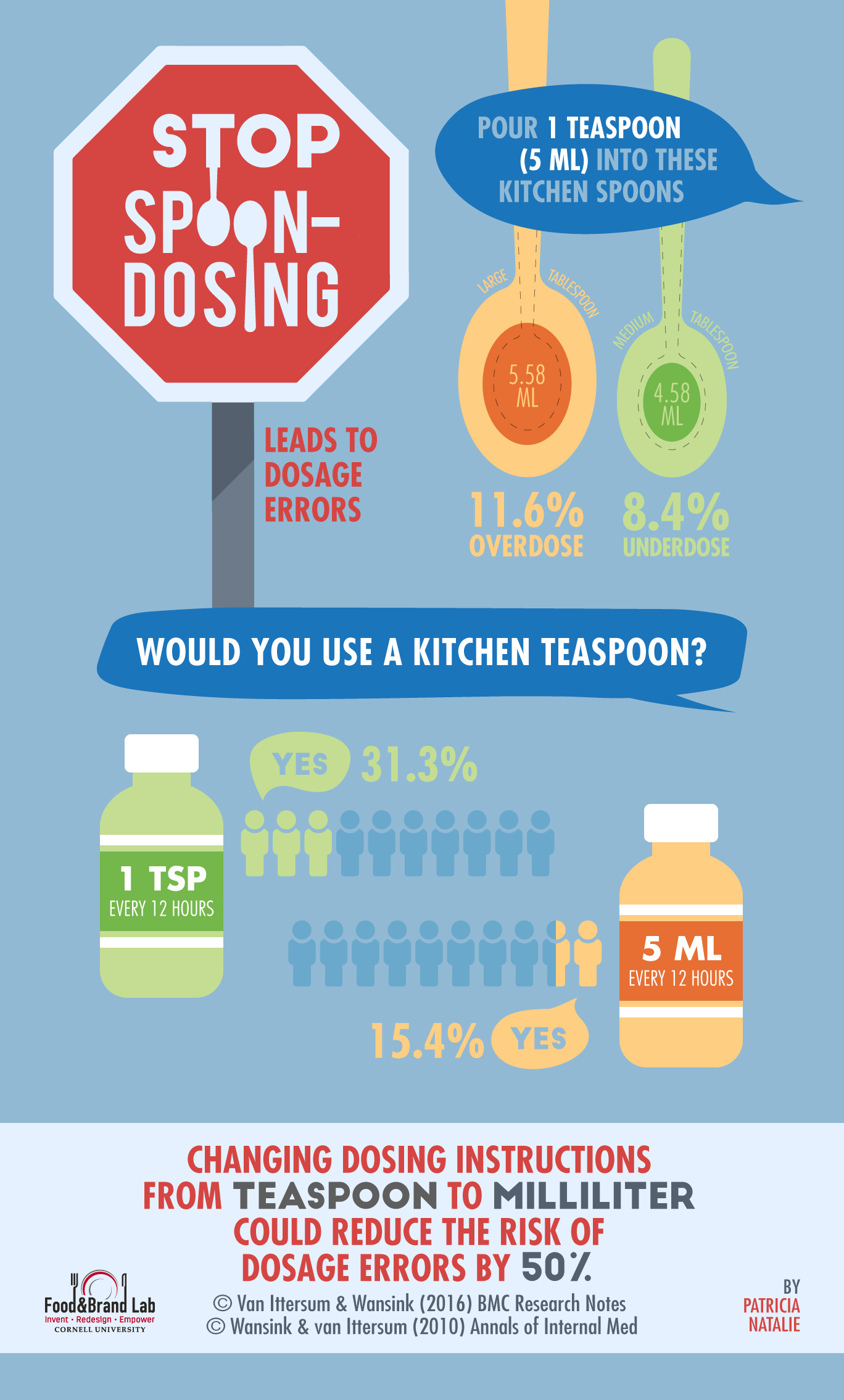“Prevent medicine dosing errors: change instructions from spoons to milliliters”

Take one teaspoon, ór 5ml of coughing syrup, twice a day. While it is known that spoon dosing leads to dosing errors, the pharmaceutical industry worldwide continues to use this ambiguous measuring unit on medicine packages. Koert van Ittersum, Professor of Marketing and Consumer Well-being at the University of Groningen, discovered that deleting the option of measuring in spoons could reduce the risk of dosage errors by more than 50%.
Van Ittersum, publishes his results together with Brian Wansink, Professor of Marketing at Cornell University (US) in BMC Research Notes . The article is titled: “Stop spoon dosing: milliliter instructions reduce inclination to spoon dosing".
Over- and under-serve
In a previous study (published in the high-impact journal Annals of Internal Medicine) Van Ittersum and Wansink already found the high risk on dosing errors when using spoons: when individuals use teaspoons to measure medicine they tend to under-serve by 8.4%. And when using tablespoons they even over-serve by 11.6%. Still the pharmaceutical industry uses this on Drug Facts panels on liquid medicine packages.
Difficult to estimate
In this new study, the researchers found that errors in estimating doses can be mitigated by changing the serving measurements on the dosage facts panel from teaspoons to milliliters. “It is a fact that milliliters are more difficult to estimate visually”, says Van Ittersum. “That’s why people would then chose to measure out doses with more accurate measuring devices. Which makes dosage errors less likely.”
50% decrease
Of the 177 young adults that participated in this US-based study, about one-third reported using spoons mostly to measure medicine. During this study, all participants were offered spoons and measuring cups with both spoon units and milliliter units on it. The participants given dosing instructions in milliliters were less likely to choose a teaspoon than those given instructions in spoon units (31.3% versus 15.4%). This small difference could result in more than a 50% decrease in those using inaccurate kitchen spoons to estimate doses.
Note for the press
For more information:
professor Koert van Ittersum

________________________________________________
> More news from the Faculty of Economics and Business
> FEB experts in the media


| Last modified: | 29 February 2024 10.02 a.m. |
More news
-
12 April 2024
Inaugural Lecture Corine Noordhoff: Future ready retail
In her inaugural lecture, Professor of Retail Marketing Corine Noordhoff will provide insights in the cornerstones for survival and adaptation in the retail sector. Noordhoff’s inaugural lecture will take place on Friday 19 April 2024, 16:15 –...
-
09 April 2024
New issue FEB Research Newsletter
We are proud to present the spring 2024 edition of the FEB Research Newsletter.
-
08 April 2024
Nieuwe essayreeks: Duurzaamheidsverslaggeving na de CSRD
De eerste editie is uit van de gratis essayreeks van UGBS over duurzaamheidsverslaggeving sinds de CSRD. Met tips voor ondernemers. Abonneer om op de hoogte te blijven van nieuwe edities.
